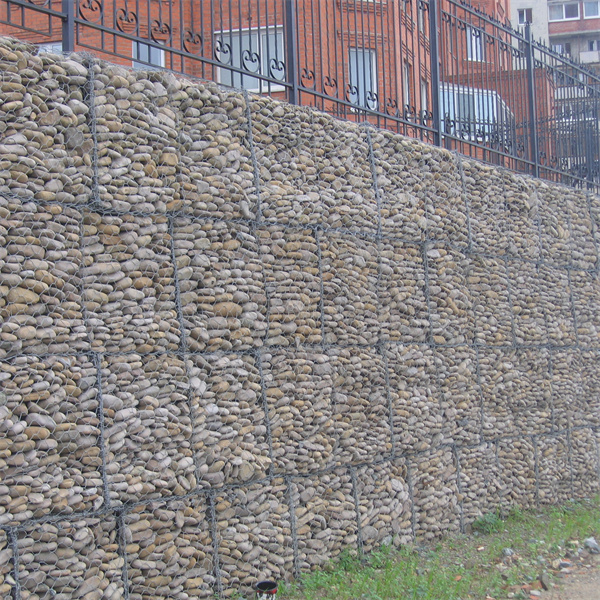Nov . 11, 2024 13:55 Back to list
best gabion wall mesh
Exploring the Best Gabion Wall Mesh A Comprehensive Guide
Gabion walls have become increasingly popular in construction and landscaping due to their durability, versatility, and aesthetic appeal. At the heart of these structures lies the essential component gabion wall mesh. This article will delve into the various types of gabion mesh available, their benefits, and tips for selecting the best option for your project.
What is Gabion Wall Mesh?
Gabion wall mesh refers to the wire mesh containers that are filled with stones, gravel, or other materials to create a strong and stable structure. Traditionally used for retaining walls, slope stabilization, and erosion control, gabions can also be employed for decorative purposes in landscaping. The mesh serves to hold the fill materials in place, ensuring that the walls maintain their shape and integrity.
Types of Gabion Wall Mesh
1. Welded Wire Mesh This type of mesh is made by welding wire intersections together, providing a strong and rigid structure. Welded wire gabions are particularly suited for high-load applications due to their increased strength and stability. They are commonly used in projects requiring precise shapes or when a smooth surface is desired.
2. Hexagonal Wire Mesh Also known as woven wire mesh, hexagonal mesh is made up of interwoven wires that form a honeycomb pattern. This type is flexible and adaptable, making it easier to contour to various shapes and lines. Hexagonal wire gabions are often used for landscaping projects and are less expensive than welded mesh options.
3. Galvanized vs. PVC Coated Mesh Wire mesh can be galvanized to resist corrosion, making it suitable for use in wet conditions. On the other hand, PVC-coated wire offers even greater protection against environmental factors. This coating not only increases longevity but also provides aesthetic variety, as PVC comes in different colors to complement any design.
Benefits of Gabion Wall Mesh
- Durability Gabion walls are designed to withstand harsh weather conditions and heavy loads
. The wire mesh keeps the fill material intact, while the stones provide natural drainage.- Eco-Friendly Gabions utilize natural, locally-sourced materials for filling, making them an environmentally friendly alternative to traditional concrete walls.
best gabion wall mesh

- Aesthetic Appeal Gabion walls can be used creatively in landscaping. The stones within the mesh can be chosen for color and texture, allowing for a unique design that varies from project to project.
- Cost-Effective Gabion walls can be more affordable than traditional retaining walls, particularly when local materials are used for filling. Additionally, their ease of installation can lead to reduced labor costs.
Choosing the Best Gabion Wall Mesh
When selecting the best gabion wall mesh for your project, consider the following factors
- Purpose Determine the primary function of your gabion wall. For erosion control or retaining walls, a stronger welded wire mesh may be appropriate. For decorative purposes, hexagonal mesh may suffice.
- Environment Consider the climate and environmental conditions where the structure will be located. For wet areas, galvanized or PVC-coated meshes offer added protection against corrosion.
- Aesthetic Goals If appearance is a priority, think about the types of stones or fill materials you wish to use. The choice of mesh can affect the overall look of the final structure.
- Budget Evaluate the cost implications of different mesh types and the materials required for filling the gabions. Balancing quality with budget constraints is essential for a successful project.
Conclusion
Gabion wall mesh is a crucial element that contributes to the strength and durability of gabion structures. By understanding the different types of mesh available and their benefits, you can make informed decisions that lead to successful construction or landscaping projects. Whether for practical uses or aesthetic enhancements, gabions provide an ideal solution that harmonizes functionality with beauty.
-
Versatility of Chain Link Fence Gabion
NewsMay.13,2025
-
Trusted Gabion Box Suppliers
NewsMay.13,2025
-
PVC Coated Gabion for Long-Lasting Structural Integrity
NewsMay.13,2025
-
Garden Gabion for Stylish
NewsMay.13,2025
-
Galvanized Gabion for Durable Outdoor Structures
NewsMay.13,2025
-
Gabion Box Factory
NewsMay.13,2025
-
Gabion Basket Wire Gauge and Mesh
NewsMay.13,2025






